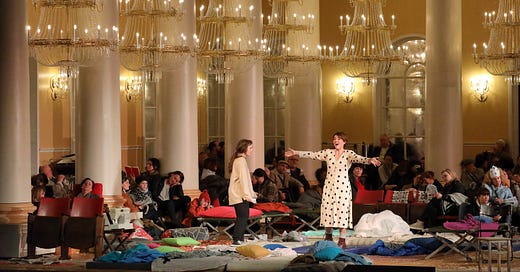Auteur : Jos Hermans
When he attends the premiere of Peace, the first part of what he considers to be his magnum opus, in the war year of 1945, on June 7, Sergei Prokofiev is in fact deathly ill. Migraines and skyrocketing blood pressure have been making his life a hell for several years after an unfortunate fal…
Keep reading with a 7-day free trial
Subscribe to Leidmotief | Leitmotif to keep reading this post and get 7 days of free access to the full post archives.




